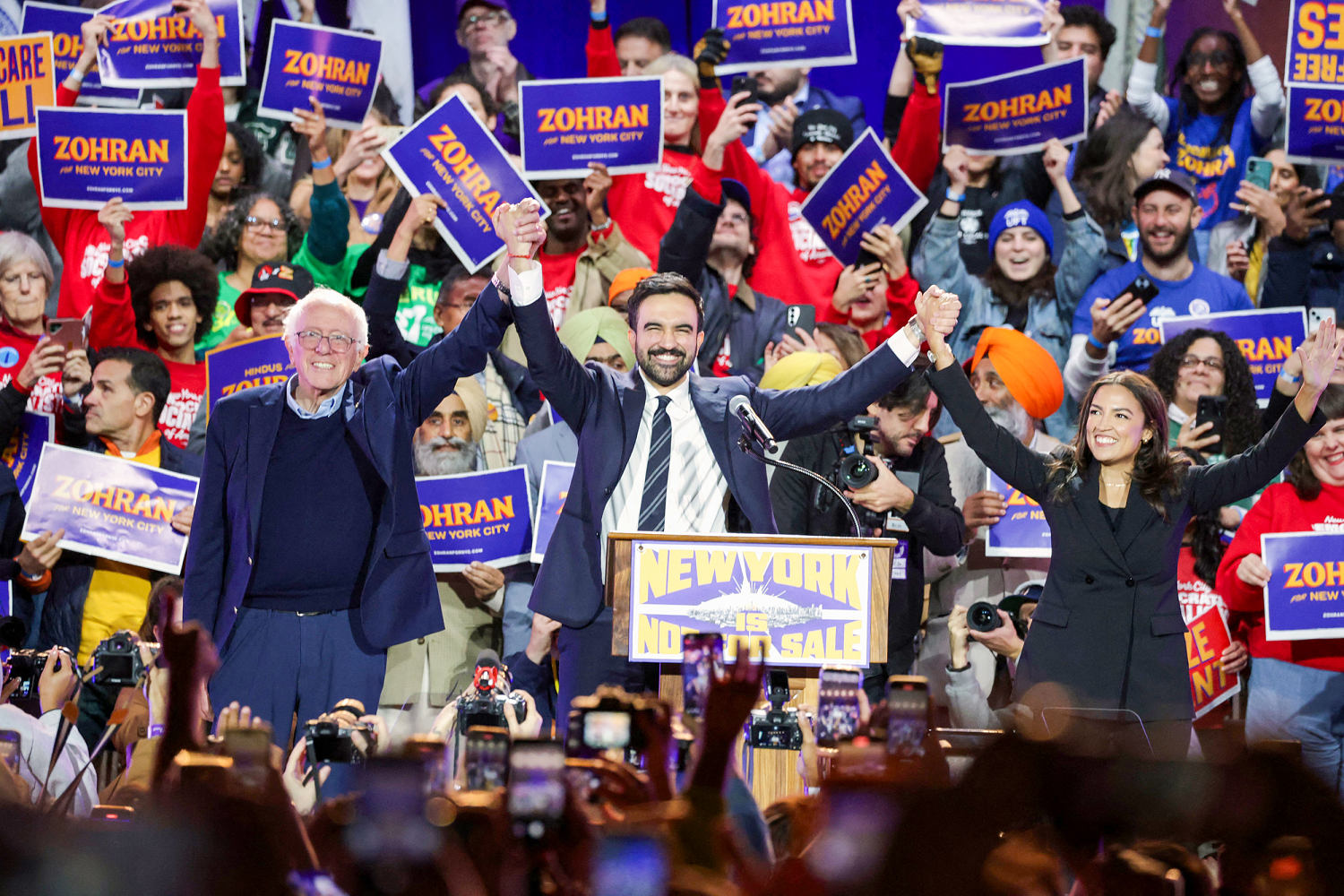
The share of registered voters with positive views of capitalism has dropped under 50% for the first time in seven years of NBC News polling on the issue — a shift that comes as some democratic socialists, like New York mayoral hopeful Zohran Mamdani, gain prominence in the Democratic Party.
Overall, 44% of registered voters say they have a positive view of capitalism, while 28% view it negatively. That’s a dip from how the economic system had been viewed in previous polls, which showed slim majorities viewing capitalism positively.
There’s a stark partisan difference in views on capitalism, a trend that also plays out in various demographics more likely to identify with either party. Two-thirds of Republicans view capitalism positively, compared to 44% of independents and 25% of Democrats. Just 12% of Republicans view capitalism negatively, compared to 28% of independents and 45% of Democrats.
Notably, 39% of Democrats viewed capitalism positively in September 2024, while 34% viewed it negatively then — a 5-point net-positive rating, compared to a 20-point net-negative rating among Democrats now.
Voters under the age of 35 also swung heavily toward more negative views of capitalism over the last year, while Hispanic voters also swung in the same direction and are now effectively split on the economic system.
Meanwhile, views of socialism have stayed more stable. Now, 49% of registered voters view it negatively — a slight decline from past measurements, which bounced between 50% and 55%. And 18% view socialism positively, right in line with how voters have felt each time the question has been asked since 2018.
Under the hood, the trends look similar to the movement on capitalism, just in reverse.
Last September, 34% of Democrats viewed socialism positively and 29% viewed it negatively. Now, a similar 35% of Democrats view socialism positively, but 20% view it negatively.
While Hispanic voters soured a bit on capitalism in the poll, their views on socialism didn’t move in the same way. Hispanic voters viewed socialism negatively by a 29-point margin in 2024. Now, it’s a 24-point margin.
Views on capitalism and socialism, particularly among Democrats, are evolving as Mamdani and other self-described democratic socialists like Sen. Bernie Sanders, I-Vt., and Rep. Alexandria Ocasio-Cortez, D-N.Y., have become increasingly powerful in their party, barnstorming the country and commanding a vocal constituency.
Mamdani, having come up in politics as a democratic socialist and still leaning into that identity, could be on the precipice of winning arguably the largest office in the movement’s history.
“I call myself a democratic socialist, in many ways inspired by the words of Dr. King from decades ago. ‘Call it democracy, or call it democratic socialism, there has to be a better distribution of wealth for all of God’s children in this country,’” Mamdani told NBC News’ “Meet the Press” this summer.
Mamdani’s top opponent, Andrew Cuomo, the former Democratic governor of New York, has used that affiliation as a cudgel. Before and after Mamdani defeated him in the June Democratic primary, Cuomo has called Mamdani a socialist, not a Democrat, and warned that his policies will bankrupt the city.
“I am the Democrat. He is a socialist. New York cannot survive as a socialist economy,” Cuomo told Fox News last week.
Though Mamdani is running for a municipal post, the campaign’s national prominence in the nation’s largest city means that about two-thirds of registered voters nationally already feel they know enough about him to register an opinion on him.
Overall, 22% of registered voters view Mamdani positively, while 32% view him negatively and 14% have a neutral view. Another 32% either aren’t sure or don’t know enough to rate him.
Virtually every Republican who knows enough about Mamdani to rate him views him negatively, while Mamdani fares much better among Democrats: 44% view him positively and 10% view him negatively. Among independents, 16% view him positively and 25% view him negatively.
The NBC News poll surveyed 1,000 registered voters from Oct. 24-28 via a mix of telephone interviews and an online survey sent via text message. The margin of error is plus or minus 3.1 percentage points.


